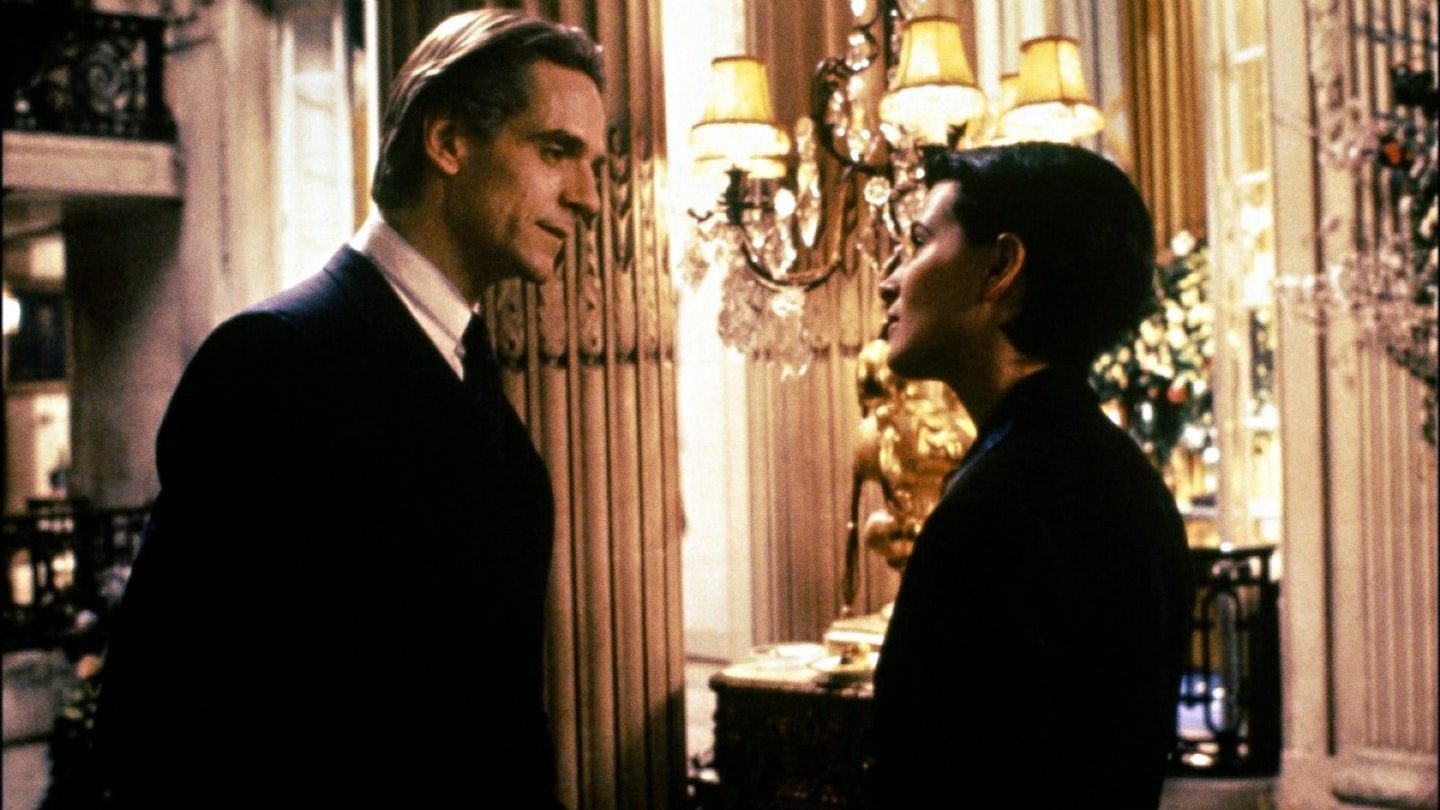Walking a precarious line between stark, penetrating drama and pretentious twaddle, Louis Malle's terribly British vision of erotic obsession, adapted from Josephine Hart's bestseller, is alternately compelling and risible, hypnotic and remote. Irons is Stephen Fleming, a respected Tory MP being groomed for a Cabinet position.
Contentedly married to warm, supportive and socially prominent wife Ingrid (expertly played by Richardson), Stephen lives a supremely starched existence of weekends in the country, Whitehall manoeuvring and tedious Embassy cocktail parties, which is where he first encounters Anna Barton (Binoche), the fiancee of his journalist son Martyn (Graves).
Exchanging potent eye contact across the room, the future in-laws are both unsettled and electrified, and hours after official introductions at the Fleming's Hampstead home, are wordlessly entwining themselves together in acrobatic bouts of frenzied, illicit sex (more disturbing than sizzling) at Anna's flat. And soon the erotically spellbound Irons convincing without being overwhelming is desperately pursuing Anna to Paris for rumpy-pumpy in an alleyway, despite warnings from his lover about her "damaged" past. "Damaged people are dangerous," she warns him. Her face a sheet-white death mask, her slicked-back hair as jet black as her elegant wardrobe, Binoche is mesmerising here as the beautiful, but almost psychotically remote siren in a role that could easily have descended into a vampy fatale parody, making it believable that this dull politician would blindly betray his family and imperil his career for a little nirvanic passion.
Throughout, however, Malle fails to tap into that passion, coming up with a sparse and cold account of a quadrangle of people about whom you ultimately care little. The brilliant Richardson, however, comes on at the end like a whirling dervish from the darkest depths of Irons' bruised conscience, unleashing a torrent of rage against the treacherous events that have devastated her life. And in that single scene, Damage achieves a level of gut-wrenching emotional intensity that had previously been absent.
